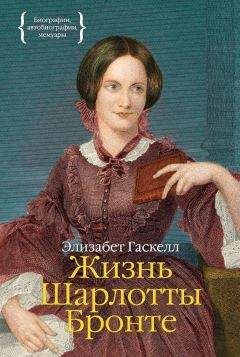Владимир Набоков - Комментарии к «Евгению Онегину» Александра Пушкина
На нашем сайте KnigaRead.com Вы можете абсолютно бесплатно читать книгу онлайн Владимир Набоков, "Комментарии к «Евгению Онегину» Александра Пушкина" бесплатно, без регистрации.
XXIX
She early had been fond of novels;for her they replaced all;
she grew enamored with the fictions
4 of Richardson and of Rousseau.
Her father was a kindly fellow
who lagged in the precedent age
but saw no harm in books;
8 he, never reading,
deemed them an empty toy,
nor did he care
what secret tome his daughter had
12 dozing till morn under her pillow.
As to his wife, she was herself
mad upon Richardson.
XXX
was not that she had read him,
and not that Grandison
4 to Lovelace she preferred;14
but anciently, Princess Alina,
her Moscow maiden cousin,
would often talk to her about them.
8 Her husband at that time still was
her fiancé, but against her will.
She sighed after another
whose heart and mind
12 were much more to her liking;
that Grandison was a great dandy,
a gamester, and an Ensign in the Guards.
XXXI
dressed in the fashion and becomingly;
but without asking her advice
4 they took the maiden to the altar;
and to dispel her grief
the sensible husband repaired
soon to his countryseat, where she,
8 God knows by whom surrounded, tossed
and wept at first,
almost divorced her husband, then
got occupied with household matters, grew
12 habituated, and became content.
Habit to us is given from above:
it is a substitute for happiness.15
XXXII
that nothing else could ward;
a big discovery soon came
4 to comfort her completely.
Between the dally and the do
a secret she discovered: how to govern
her husband monocratically,
8 and forthwith everything went right.
She would drive out to supervise the farming,
she pickled mushrooms for the winter,
she kept the books, “shaved foreheads,”
12 to the bathhouse would go on Saturdays,
walloped her maids when cross —
all this without asking her husband's leave.
XXXIII
in tender maidens' albums,
would call Praskóvia “Polína,”
4 and speak in singsong tones;
very tight stays she wore,
and knew how to pronounce a Russian n
as if it were a French one, through the nose;
8 but soon all this ceased to exist; stays, album,
Princess [Alina],
cahier of sentimental verselets, she
forgot, began to call
12 “Akúl'ka” the one-time “Selína,”
and finally inaugurated
the quilted chamber robe and mobcap.
XXXIV
he did not enter in her schemes,
on every score lightheartedly believed her
4 whilst in his dressing gown he ate and drank
His life rolled comfortably on;
at evenfall sometimes assembled
a kindly group of neighbors,
8 unceremonious friends,
to rue, to tattle,
to chuckle over this or that.
Time passed; meanwhile
12 Olga was told to prepare tea;
then supper came, and then 'twas bedtime,
and off the guests would drive.
XXXV
the customs of dear ancientry:
with them, during fat Butterweek
4 Russian pancakes were wont to be.
. . . . . . . . . . . . . . . . . . . .
. . . . . . . . . . . . . . . . . . . .
. . . . . . . . . . . . . . . . . . . .
8 . . . . . . . . . . . . . . . . . . . .
. . . . . . . . . . . . . . . . . . . .
. . . . . . . . . . . . . . . . . . . .
. . . . . . . . . . . . . . . . . . . .
12 kvas was as requisite to them as air,
and at their table dishes were presented
to guests in order of their rank.
XXXVI
and the grave's portals
opened at last before the husband,
4 and a new crown upon him was bestowed.
He died at the hour before the midday meal,
bewailed by neighbor,
children, and faithful wife,
8 more candidly than some.
He was a simple and kind squire,
and there where lies his dust
the monument above the grave proclaims:
12 “The humble sinner Dmitri Larin,
slave of our Lord, and Brigadier,
enjoyeth peace beneath this stone.”
XXXVII
Vladimir Lenski visited
his neighbor's humble monument,
4 and to the ashes consecrated
a sigh, and long his heart was melancholy.
“Poor Yorick!”16 mournfully he uttered, “he
hath borne me in his arms.
8 How oft I played in childhood
with his Ochákov medal!
He destined Olga to wed me;
he used to say: ‘Shall I be there
12 to see the day?’ ” and full of sincere sadness,
Vladimir there and then set down for him
a gravestone madrigal.
XXXVIII
in tears, he also honored there his father's
and mother's patriarchal dust.
4 Alas! Upon life's furrows,
in a brief harvest, generations
by Providence's secret will
rise, ripen, and must fall;
8 others in their tracks follow.... Thus
our giddy race
waxes, stirs, seethes,
and tombward crowds its ancestors.
12 Our time likewise will come, will come,
and one fine day our grandsons
out of the world will crowd us too.
XXXIX
— of this lightsome life, friends!
Its insignificance I realize
4 and little am attached to it;
to phantoms I have closed my eyelids;
but distant hopes
sometimes disturb my heart:
8 without an imperceptible trace, I'd be sorry
to leave the world.
I live, I write not for the sake of praise;
but my sad lot, meseems,
12 I would desire to glorify,
so that a single sound at least
might, like a faithful friend, remind one about me.
XL
the heart of someone; and preserved by fate,
perhaps in Lethe will not drown
4 the strophe made by me;
perhaps — flattering hope! —
a future dunce will point
at my famed portrait
8 and utter: “That now was a poet!”
So do accept my thanks, admirer
of the peaceful Aonian maids,
0 you whose memory will preserve
12 my volatile creations,
you whose benevolent hand will pat
the old man's laurels!
CHAPTER THREE
Elle était fille; elle était amoureuse.
MalfilâtreI
“Good-by, Onegin. Time for me to leave.”
“I do not hold you, but where do
4 you spend your evenings?” “At the Larins'.”
“Now, that's a fine thing. Mercy, man —
and you don't find it difficult
thus every evening to kill time?”
8 “Not in the least.” “I cannot understand.
From here I see what it is like:
first — listen, am I right? —
a simple Russian family,
12 a great solicitude for guests,
jam, never-ending talk
of rain, of flax, of cattle yard.”
II
“Ah, but the boredom — that is bad, my friend.”
“Your fashionable world I hate;
4 dearer to me is the domestic circle
in which I can…” “Again an eclogue!
Ah, that will do, old boy, for goodness' sake.
Well, so you're off; I'm very sorry.
8 Oh, Lenski, listen — is there any way
for me to see this Phyllis,
subject of thoughts, and pen,
and tears, and rhymes, et cetera?
12 Present me.” “You are joking.” “No.”
“I'd gladly.” “When?” “Now, if you like.
They will be eager to receive us.”
III



